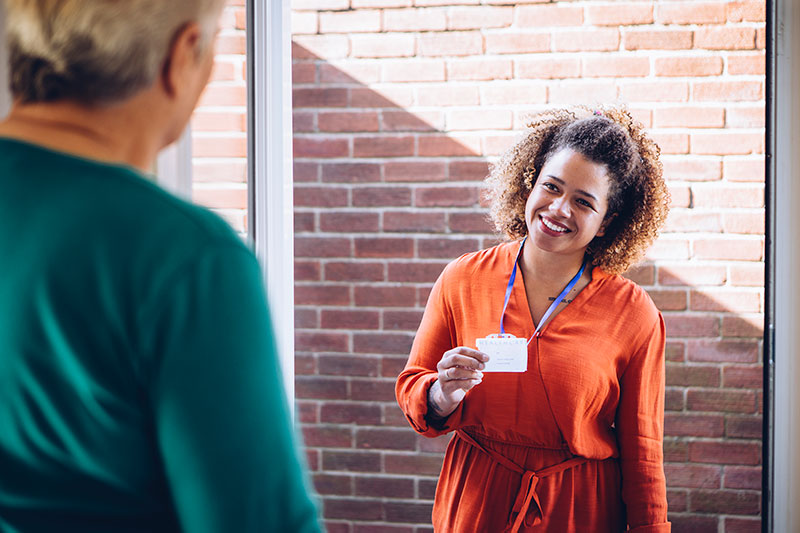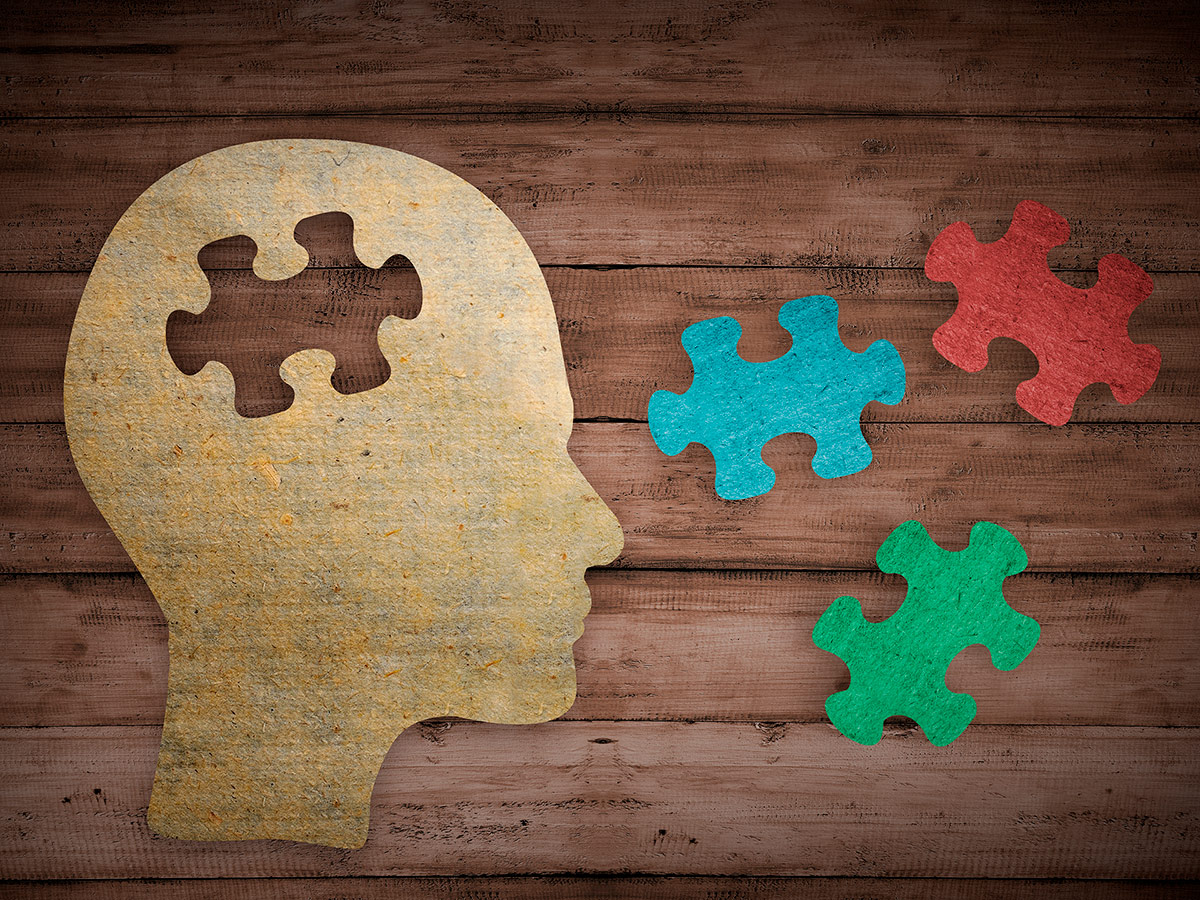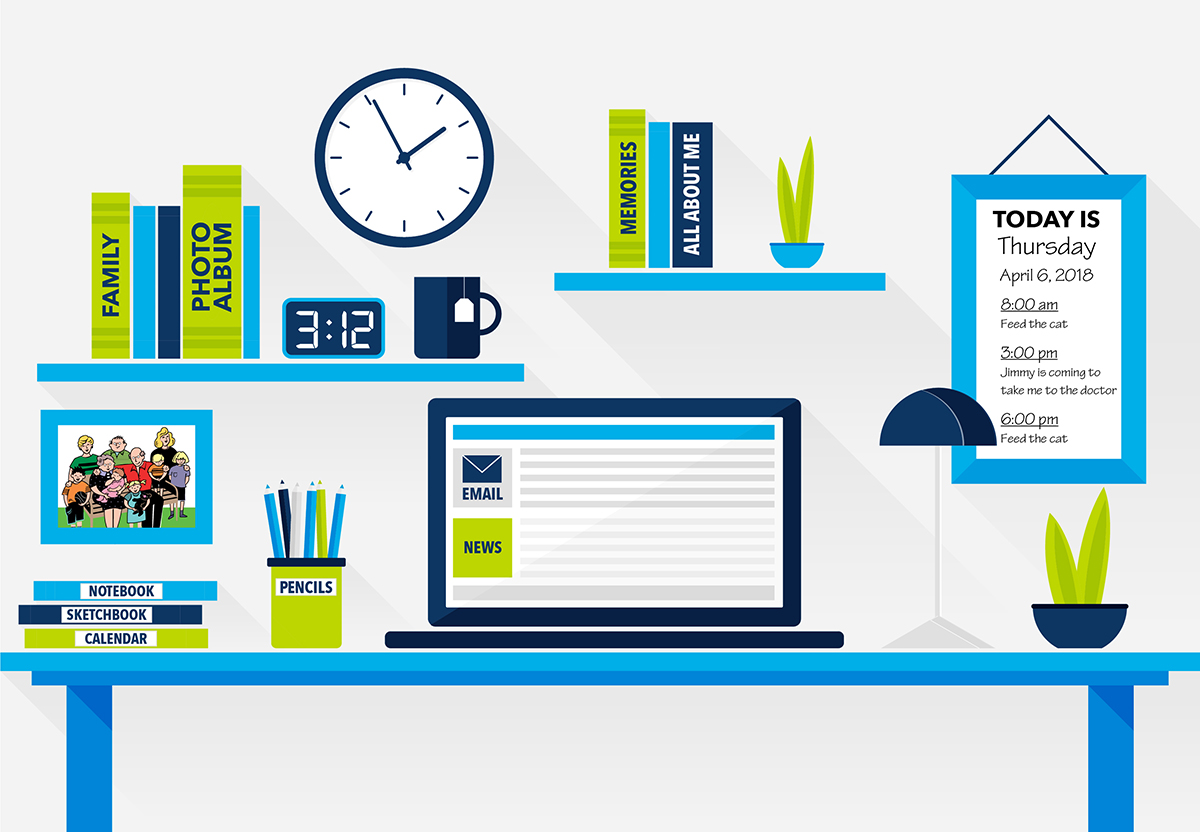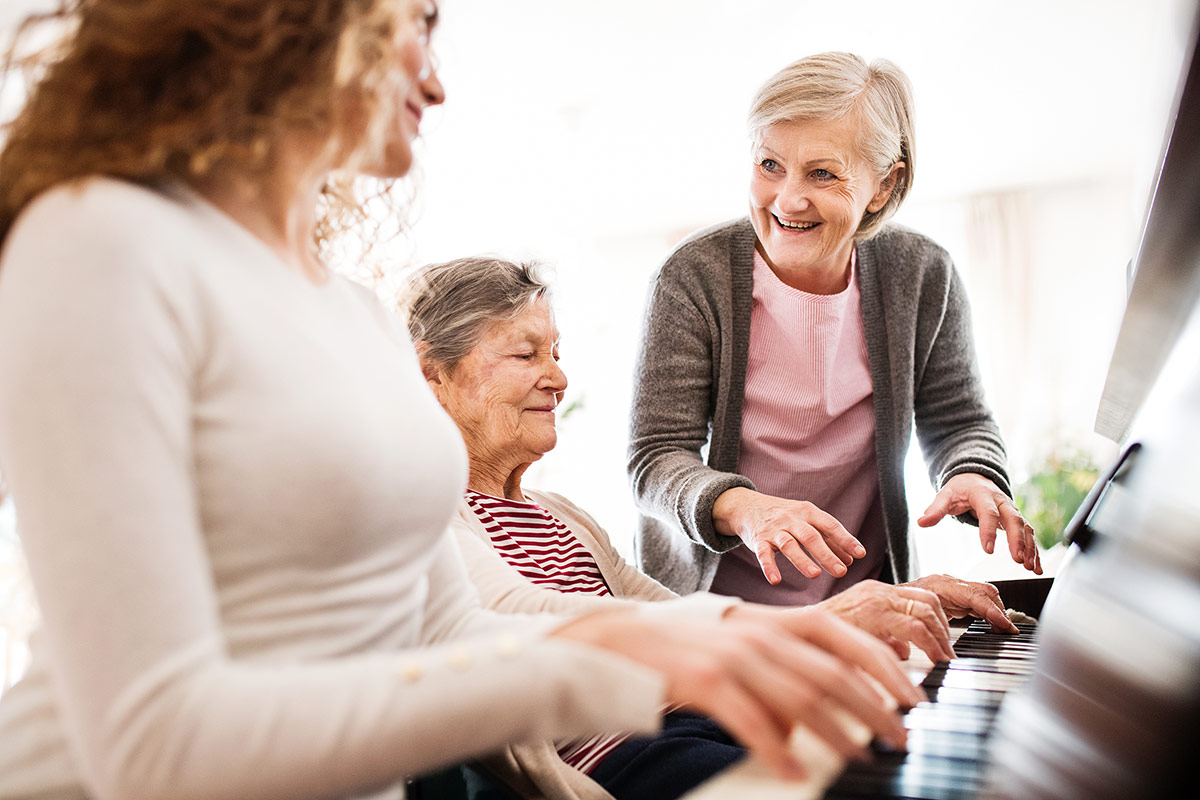
Congratulations!
You are a Dementia Friend!
Congratulations! You are a Dementia Friend!
We heard you!
Following each Dementia Friends Session, participants told us that they want to know more about the five key messages and how they can apply them. You have also asked us a lot of questions, that we hope to answer over time, on this website. We have created this section of our website just for you — a Dementia Friend who wants to make a difference.
As you read the information below, think about how this relates to your life or people you know. Please share this information with your friends and family. Everyone is different, and every situation is different. There is no “one size fits all” solution or approach.
Share Your Dementia Friend Experiences
Even the smallest success can be a big inspiration to others going through the same thing.
We encourage you to send us your story and a photo or short video to share your experience of making Ohio dementia friendly. And, if you have questions that haven’t been addressed, or you want additional information, please contact us and we will help in any way we can. After all, it is a privilege to serve.
How will you make a difference?
There are a number of ways you can share what you have learned as a Dementia Friend to truly make a difference in your community.

Share Your New Knowledge
Share your knowledge with anyone and everyone, even unusual suspects! Kids, teenagers, colleagues, family member, school teachers, bankers, store clerks, and more!
Many people think that dementia is a normal part of growing old, but it isn’t. Want to keep your brain healthy as you age?
Learn what you can do to reduce the risk of dementia.

Challenge Stigma
“There’s more to the person than the dementia.”
“Dementia affects the brain, just like lung disease affects the lungs and heart disease affects the heart. People with dementia have changes in their brain, they’re not crazy.”
People who are living with dementia want to be treated by their friends, family and community, just as they were before their diagnosis. They are still the same people, with the same interests and desires, the same ability to love and be loved.
Learn how you can support people living with dementia when their abilities begin to decline.

Encourage Others
You may consider arranging time to spend with a person with dementia, offer to take the person shopping, to lunch or a movie, taking dinner to a caregiving family, or offering to mow their lawn.
To have the most success during activities and conversations with people with dementia, you may need to adjust your style of communication so it is easier for the person with dementia to understand and follow the conversation. Sometimes it is hard to remember that our loved one with dementia is struggling each day to communicate with us.
Learn tips for dementia and communication.
During the Dementia Friends sessions, you have asked many questions.
There are five that seem to keep popping up, so we are doing our best to give you some guidance and additional information.
Many Dementia Friends have asked us:
 “What can I do to prevent dementia?”
“What can I do to prevent dementia?”
While it’s true that right now there’s no way to absolutely prevent dementia, there are action steps, backed by research, that can reduce your risk.
Learn one very important thing you can do to keep your brain healthy as you age. Click Here

 “I have heard of Alzheimer’s disease, but also heard that there are other causes of dementia. Is that true?”
“I have heard of Alzheimer’s disease, but also heard that there are other causes of dementia. Is that true?”
Dementia is caused by a number of diseases that affect the brain. Different types of dementia affect the brain at different rates and in different ways and are diagnosed differently. The symptoms that people develop depend on the areas of the brain that have been damaged by the disease.
Learn more about the common types of dementia. Click Here

 “I understand that dementia involves more than just memory impairment, but that is really our biggest concern right now. How can I support someone with memory impairment and help him function better?”
“I understand that dementia involves more than just memory impairment, but that is really our biggest concern right now. How can I support someone with memory impairment and help him function better?”
Help a person with dementia to setup a memory center in the home – this will create a sense of security and reduce anxiety because the person will know just where to look for important information. A memory center uses cues such as pictures, words, or auditory reminders to compensate for memory loss and lets the person focus on what he or she can do, rather than calling attention to what they can’t do.
Learn how to set up a memory center in your home. Click Here

 “My spouse has been diagnosed with Alzheimer’s disease. How much longer will they be able to do regular things with me, like go to our friend’s house?”
“My spouse has been diagnosed with Alzheimer’s disease. How much longer will they be able to do regular things with me, like go to our friend’s house?”
Keep in mind that everyone reacts to the experience of dementia in a different way. The experience means different things to different people. There are many abilities that people with dementia retain for a very long time. People should not be defined by dementia.
Learn about strengths that people with dementia retain, and ideas of things you can do together. Click Here

 “What do I do when my mom forgets the grandchildren’s names?”
“What do I do when my mom forgets the grandchildren’s names?”
Losing the ability to remember names, words, and facts forces the memory impaired individual to rely on others in many situations. In a conversation, the person may not remember his daughter’s name and has to hope that he’s said enough about her that his conversational partner will know who he is talking about. He may rely on his spouse to fill in the appropriate names and words when he stumbles on them.
Learn how to make a memory aid that will improve communication with someone with dementia. Click Here

Want to make even more of a difference?
Become a Dementia Friends Ohio Champion or start a Dementia Friends Club!
Become a Dementia Friends Ohio Champion
As a Dementia Friends Ohio Champion, you will be equipped with information and resources needed to facilitate 45-minute Dementia Friends Information Sessions throughout your community. These sessions will help community members understand dementia, and the small things they can do to make a difference for people living with dementia in their communities. Neighborhood groups, libraries, civic groups, banks, faith communities and businesses are just a few of the many audiences to be reached.
